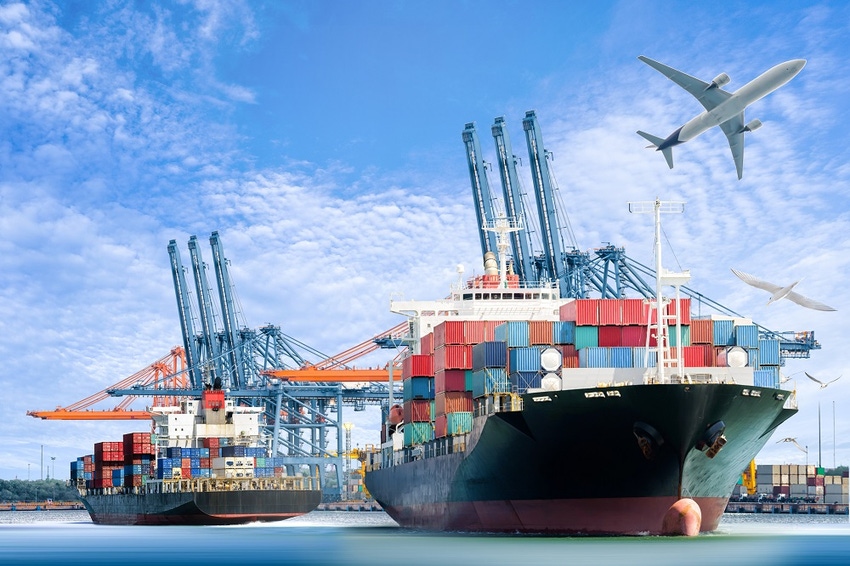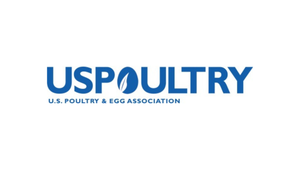Farm Bureau convention touches on importance of Administration delivering on trade promises.

The diverse impacts of tariffs, the outcomes of free trade agreement negotiations and the future of trading relations with China are all critical for the future of agricultural exports and the growth of American agriculture, David Salmonsen, senior director of congressional relations at the American Farm Bureau Federation (AFBF), told a workshop at the organization’s 100th annual convention.
During remarks in the opening session, AFBF president Zippy Duvall said, “The trade war in China is going to be a long one, and we keep delivering the message: 'We’re with you Mr. President. We understand it, but we need to make sure the rest of the world is helping you, because China’s not just mistreating us; they’re mistreating the whole world.’”
Duvall added that the amount of patience on the trade front depends on the financial situation on the farm. “We went into this battle very weak,” Duvall said, adding they’re going to hang with President Donald Trump but have encouraged him to find a fast solution to trade issues.
Salmonsen said a U.S. delegation went to China to negotiate last week with U.S. Department of Agriculture undersecretary for trade Ted McKinney and U.S. Trade Representative chief agricultural negotiator Greg Doud. There have been no formal announcements yet from the Administration, and talks are continuing.
At the sideline of the workshop, Salmonsen was joined by AFBF director of congressional relations Veronica Nigh. Citing the impact of Chinese tariffs, Nigh said agricultural exports to China were down by $2 billion in 2018, and USDA forecasts exports to decline by an additional $7 billion in 2019. China was ranked as our second-largest trading partner for several years but is projected to be fifth in 2019. Currently, 99% of all U.S. agricultural products exported to China are subject to tariffs.
Summing up the impact of the China trade disputes, Nigh said the biggest concern is that many countries grow soy and corn, and now there’s room in China’s markets for these commodities. “We could lose the market even if the tariffs eventually go away, and it would take time to restore these markets.”
USMCA
During his speech before the convention, Trump again called the North American Free Trade Agreement “one of the worst deals ever” and touted the new “landmark trade deal” that will benefit wheat growers in Montana, dairy farmers in Wisconsin and chicken farmers in Georgia.
Salmonsen discussed the U.S.-Mexico-Canada Agreement (USMCA) and outlined the process for ratification. “It could be quick, or it could be slow, but there is a timeline that has to be followed,” Salmonsen said.
Duvall called on members to help get USMCA through Congress. “This President can't do it by himself, this secretary can't do it by himself and, surely, those four principals can't do it by themselves. We’ve got to make sure when everybody's back home in your communities you're telling them we need this trade treaty passed,” he said.
If USMCA is implemented, it will increase quota access for U.S. dairy products into Canada and end Canada’s Class 7 pricing. It will also keep agricultural tariffs between the U.S. and Mexico at zero.
Discussing the potential impact of USMCA, Nigh said while it is positive that the U.S. will be exporting more dairy to Canada, it isn’t going to be a major market mover because Canada’s total population is 36 million people, and the country has a strong domestic dairy industry. Still, it is a positive sign for U.S. agriculture.
Nigh noted that if the U.S. were to withdraw from the North American Free Trade Agreement, there would be great cause for concern, because old tariffs the U.S. has not seen in 20 years could return.
Japan, EU negotiations
Salmonsen said the U.S. has also begun trade negotiations with Japan, the European Union and the U.K., although the start of U.K. negotiations depends on when the U.K. completes the process of leaving the EU. He added that, in any agreement, there is political bargaining that will go on for several months.
As the U.S. begins prepping for trade negotiations with the EU, the Trump Administration is demanding that agriculture be on the table. U.S. law requires the U.S. Trade Representative to publish objectives 30 days prior to negotiations. On Jan. 11, the Administration included in its negotiating objectives a set of agriculture-related demands, which have been in question due to the EU’s reluctance to discuss agriculture.
The inclusion was welcomed by those in the agriculture industry. American Soybean Assn. (ASA) president Davie Stephens said in a statement, “ASA appreciates USTR and the Administration’s commitment to keeping agriculture in these negotiations at a time when soybean growers are looking for long-term solutions to bounce back from a prolonged period of instability.”
Trump called out the EU for not wanting U.S. agricultural products and said they “treat our farmers terrible.”
According to an announcement following the release of official U.S.-Japan negotiating objectives, the U.S. said it could begin trade talks with Japan as early as Jan. 20. The objectives, released on Dec. 21, call for “comprehensive market access” for American agricultural products.
Agricultural groups, such as the National Pork Producers Council (NPPC), have been urging the Administration to expeditiously negotiate a deal with Japan to help level the uneven playing field created by the Comprehensive & Progressive Agreement for the Trans-Pacific Partnership, which went into effect Dec. 30, and the expected Feb. 1 implementation of the EU’s agreement with Japan.
In 2016, Japanese consumers purchased almost $1.6 billion of U.S. pork products, making Japan the U.S. pork industry’s number-one export market, NPPC said in a release.
“All of these negotiations are with major trading partners,” Salmonsen said. “These are substantive and important negotiations that we will be following very closely throughout the coming year.”
About the Author(s)
You May Also Like





